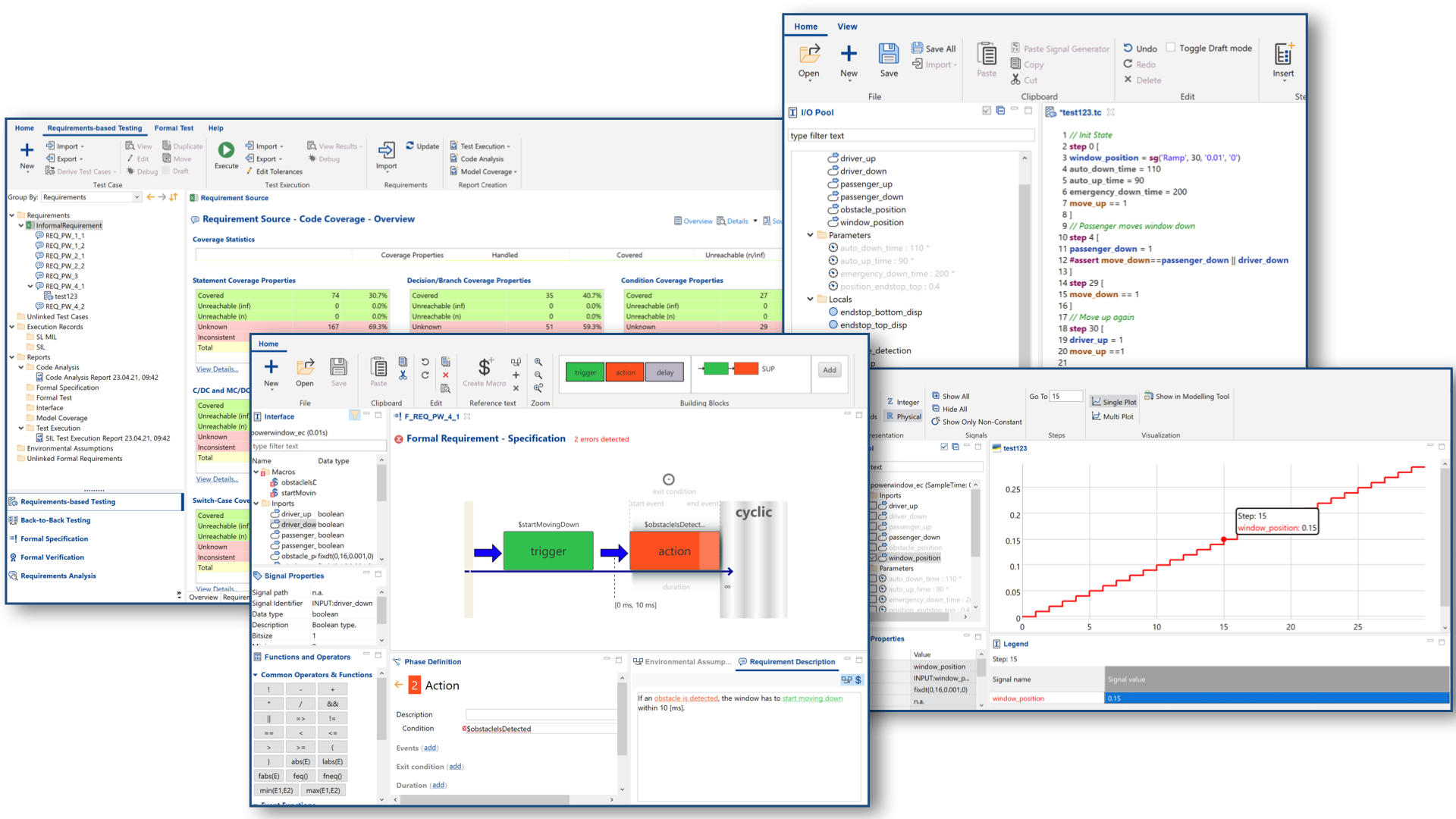BTC EmbeddedPlatform 2.10 is now available.

Our summer release adds support for Matlab and Embedded Coder 2021a but we’d also like to highlight some powerful new features:
Improved Requirements Update including Diff-View to follow up changes
One thing we are very proud of is the seamless integrations with Requirements Management and ALM/PLM solutions like IBM Doors Next, Siemens Polarion or PTC Integrity. These direct integrations enable a smooth requirements-based testing workflow with bi-directional traceability between tests and requirements while avoiding error prone file-based exchange formats like Excel, XML or ReqIF.
With BTC EmbeddedPlatform 2.10, we have further improved the requirements update scenario. In addition to seeing how many requirements have changed and which test cases are affected, users now get a detailled diff view. You can access it directly from the context menu and the dashboard, but also from within Test Composer, when you’re editing a test case. This helps developers and testers to react to changed requirements and adapt the affected test cases accordingly.
C-Code Architecture import from ARXML
Another great improvement with BTC EmbeddedPlatform 2.10 is the availability of a new plugin to parse Autosar ARXML files for Architecture information which makes the task of testing handwritten AUTOSAR Code so much easier.
In the context of model-based development and auto-code, it’s extremely easy to set up a test project because the relevant architecture information is extracted automatically from the model and the code generator.
For hand-code, important information such as fixed point scalings or the knowledge, if a variable is an input or an output, is not documented in the code. Users need to provide this manually or rely on heuristics which can lead to a high manual effort and adds a potential source of issues. What’s more, stub code regularly needs to be updated manually in order to correctly reflect certain communication types.
BTC EmbeddedPlatform 2.10 can analyze the Autosar ARXML files in order to extract this data. This also allows us to generate the required RTE stubs out of the box, greatly smoothing out the process of testing hand-written AUTOSAR code.
Support for MATLAB 2021a
Support for the latest release of Matlab (Rls. 2021a) has been added to EP.
Support for IBM Rational DOORS Next Generation
Requirements can be imported into EP from Doors Next via a native, bi-directional connection. Differences from one version of requirements to another can be visualized inside of EP.
Support for Requirement comparison after changes
After requirements are updated, detailed change information for a requirement is available inside EmbeddedPlatform.
Support displaying macro status inside of traces
After executing Formal Test, it is possible to check value of each macro at each step.
Enhancement of Formal Test performance
It is possible to execute Formal Test for higher number and longer/ more complex trace.
Enhancement of API support
It is possible to export formal requirements into SPEC files using the m-API or REST-API.
Enhancement of Robustness Checks
It is possible to measure and report underflows/ overflows for int32 to float32 as well as uint32 to float32.
